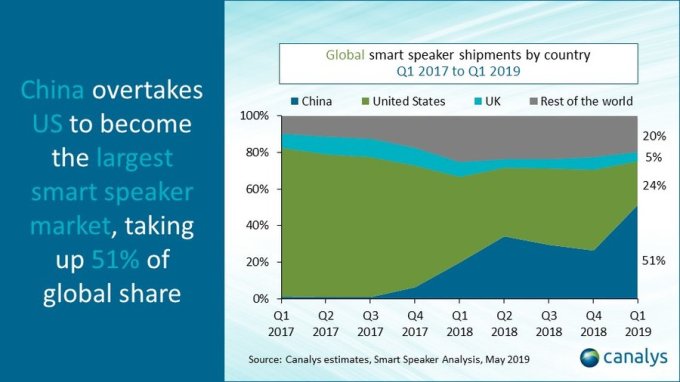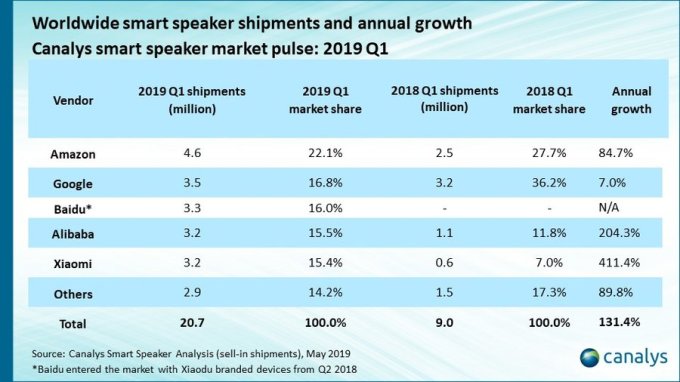The escalating US-China trade war that’s seen Chinese tech giant Huawei slapped on a US trade blacklist is causing ripples of shock across Europe too, as restrictions imposed on US companies hit regional suppliers concerned they could face US restrictions if they don’t ditch Huawei.
Reuters reports shares fell sharply today in three European chipmakers, Infineon Technologies, AMS and STMicroelectronics, after reports suggested some already had, or were about to, halt shipments to Huawei following the executive order barring US firms from trading with the Chinese tech giant.
The interconnectedness of high tech supply chains coupled with US dominance of the sector and Huawei’s strong regional position as a supplier of cellular, IT and network kit in Europe suddenly makes political risk a fast-accelerating threat for EU technology companies, large and small.
On the small side is French startup Qwant, which competes with Google by offering a pro-privacy search engine. In recent months it has been hoping to leverage a European antitrust decision against Google Android last year to get smartphones to market in Europe that preload its search engine, not Google’s.
Huawei was its intended first major partner for such devices. Though, prior to recent trade war developments, it was already facing difficulties related to price incentives Google included in reworked EU Android licensing terms.
Still, the US-China trade war threatens to throw a far more existential spanner in European Commission efforts to reset the competitive planning field for smartphone services. Certainly if Google’s response to Huawei’s blacklisting is to torch its supply of almost all Android-related services, per Reuters.
A key aim of the EU antitrust decision was intended to support the unbundling of popular Google services from Android so that device makers can try selling combinations that aren’t entirely Google-flavored — while still being able to offer enough ‘Google’ to excite consumers (such as preloading the Play Store but with a different search and browser bundle instead of the usual Google + Chrome combo).
Yet if Google intends to limit Huawei’s access to such key services there’s little chance of that.
(In a statement responding to the Reuters report Google suggested it’s still deciding how to proceed, with a spokesperson writing: “We are complying with the order and reviewing the implications. For users of our services, Google Play and the security protections from Google Play Protect will continue to function on existing Huawei devices.”)
Going on Google’s initial response, Qwant co-founder and CEO Eric Léandri told us he thinks Google has overreacted — even as he dubbed the US-China trade war “world war III — economical war but it’s a world war for sure”.
“I really need to see exactly what the president trump has said about Huawei and how to work with them. Because I think maybe Google has overreacted. Because I haven’t [interpreted it] that way so I’m very surprised,” he told TechCrunch.
“If Huawei can be [blacklisted] what about the others?” he added. “Because I would say 60% of the cell phone sales in Europe today are coming from China. Huawei or ZTE, OnePlus and the others — they are all under the same kind of risk.
“Even some of our European brands who are very small like Nokia… all of them are made in China, usually with partnership with these big cell phone manufacturers. So that means several things but one thing that I’m sure is we should not rely on one OS. It would be difficult to explain how the Play Store is not as important as the search in Android.”
Léandri also questioned whether Google’s response to the blacklisting will include instructing Huawei not to even use its search engine — a move that could impact its share of the smartphone search market.
“At the end of the day there is just one thing I can say because I’m just a search engine and a European one — I haven’t seen Google asking to not be by default in Huawei as search engine. If they can be in the Huawei by default as a search engine so I presume that everyone else can be there.”
Léandri said Qwant will be watching to see what Huawei’s next steps will be — such as whether it will decide to try offering devices with its own store baked in in Europe.
And indeed how China will react.
“We have to understand the result politically, globally, the European consequences. The European attitude. It’s not only American and China — the rest of the world exists,” he said.
“I have plan b, plan c, plan d, plan f. To be clear we are a startup — so we can have tonnes of plans, The only thing is right now is it’s too enormous.
“I know that they are the two giants in the tech field… but the rest of the world have some words today and let’s see how the European Commission will react, my government will react and some of us will react because it’s not only a small commercial problem right now. It’s a real political power demonstration and it’s global so I will not be more — I am nobody in all this. I do my job and I do my job well and I will use the maximum opportunity that I can find on the market.”
We’ve reached out to the Commission to ask how it intends to respond to escalating risks for European tech firms as Trump’s trade war steps up.
Also today, Reuters reports that the German Economy Minister is examining the impact of US sanctions against Huawei on local companies.
But while a startup like Qwant waits to see what the next few months will bring — and how the landscape of the smartphone market might radically reconfigure in the face of sharply spiking political risk, a different European startup is hoping to catch some uplift: Finland-based Jolla steers development of a made-in-Europe Android alternative, called Sailfish OS.
It’s a very tiny player in a Google-dominated smartphone world. Yet could be positioned to make gains amid US and Chinese tech clashes — which in turn risk making major platform pieces feel a whole lot less stable.
A made-in-Europe non-Google-led OS might gain more ground among risk averse governments and enterprises — as a sensible hedge against Trump-fuelled global uncertainty.
“Sailfish OS, as a non-American, open source based, secure mobile OS platform, is naturally an interesting option for different players — currently the interest is stronger among corporate and governmental customers and partners, as our product offering is clearly focused on this segment,” says Jolla co-founder and CEO Sami Pienimäki.
“Overall, there definitely has been increased interest towards Sailfish OS as a mobile OS platform in different parts of the world, partly triggered by the on-going political activity in many locations. We have also had clearly more discussions with e.g. Chinese device manufacturers, and Jolla has also recently started new corporate and governmental customer projects in Europe.”

from Android – TechCrunch https://tcrn.ch/2LXsrjx
via
IFTTT

